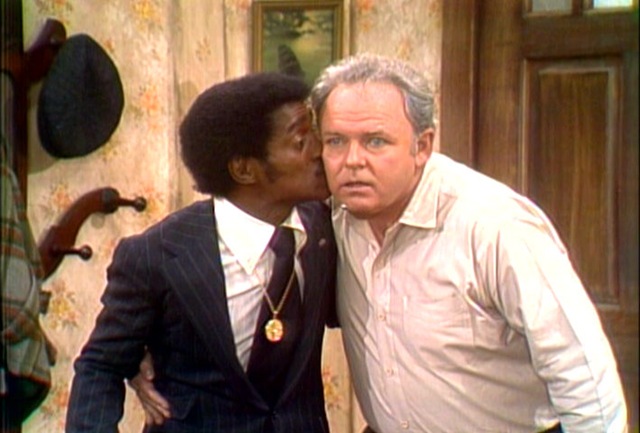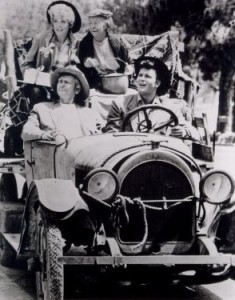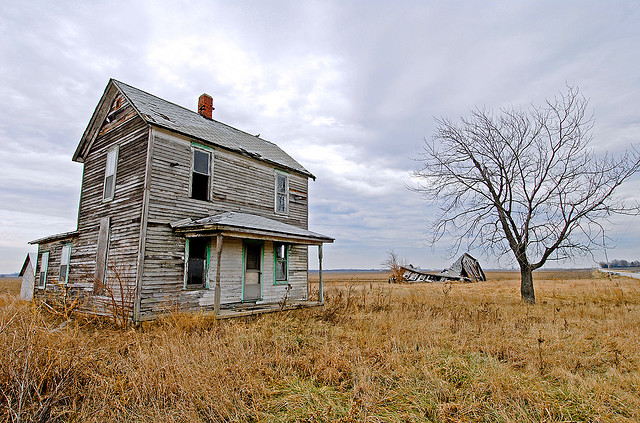Sometimes I wonder how my life would have turned out if my family had never left Fort Thomas in 1984. Maybe I would have stayed here in the Cincinnati area my entire life, married soon after high school, and settled down into a middle-class subdivision with a yard and some kids. Or maybe I would’ve run screaming to New York or Chicago the first chance I got, never looking back at Cincinnati with anything but resentment and loathing. I know plenty of Cincinnati-area natives who have taken each path.
As it turned out, we moved away when I was ten, and I haven’t spent more than four continuous years living in one city since then. As a kid I didn’t have a choice in the matter, but as an adult I’ve embarked on long-distance moves for academic reasons, better career opportunities, a better lifestyle, and most recently, an overwhelming desire to just come back home to Cincinnati. Anybody who has read the archives of this blog will know that some of these moves have been more successful than others.
Chicago was the closest thing to an adopted hometown I ever found outside of Cincinnati, but after living there three times for a total of eleven years, I feel like I’ve exhausted all my possibilities there. Many of my closest friends have moved away, and most of my recent jobs in Chicago have felt like dead ends. During a weekend visit to Chicago last year, I couldn’t shake the feeling that I was walking around in the empty shell of a life that had ceased to exist a very long time ago.
 I guess you could call it the 18-month itch. Once the novelty of living in a certain place has worn off and daily life has settled into a routine, the wanderlust starts to kick in again. It doesn’t help that I struggle with clinical depression, and when it’s at its worst, I often find myself with a strong urge to leave everything behind and start a new life for myself somewhere else. I’ve even acted on that urge a few times (my decision to move from Philly to New York in 2004 and then to Oregon later that year would be two prime examples), but so far my attempts to outrun depression haven’t been successful.
I guess you could call it the 18-month itch. Once the novelty of living in a certain place has worn off and daily life has settled into a routine, the wanderlust starts to kick in again. It doesn’t help that I struggle with clinical depression, and when it’s at its worst, I often find myself with a strong urge to leave everything behind and start a new life for myself somewhere else. I’ve even acted on that urge a few times (my decision to move from Philly to New York in 2004 and then to Oregon later that year would be two prime examples), but so far my attempts to outrun depression haven’t been successful.
By almost any measure, Cincinnati has been pretty good to me since I moved back here in March of last year. I’ve fallen in with a great group of friends, I’ve begun my long-awaited M.Arch. degree at one of the best programs in the country, I have the nicest apartment I’ve ever lived in, and I’ve even learned a lot more about the bar business than I ever thought I would. No matter what else I do in life and where I do it, I think the Cincinnati area will always be home to me.
But even before I moved here, I knew there would be a dilemma I’d have to face, which is the question of where I’ll ultimately settle down once I finish grad school, particularly in regard to rewarding career options. Assuming I remain in the architecture business, the odds of finding something here that excites me would be fairly slim even if the economy were in better shape. If the economy stays the same or gets worse, any job I take here in Cincinnati would most likely be a survival job until something better comes along.
One of my main design-related passions involves transit design and planning, and even if Cincinnati were to build its proposed streetcar line and get started on a bare-bones light rail system, there will probably never be enough of that type of work here to sustain a career. I also have an interest in high-end hospitality and custom residential design, but again, other cities offer far more opportunities in those areas than Cincinnati.
There’s also the question of what kind of city Cincinnati really wants to be in the coming years. Right now we’re fortunate to have a mayor and some city council members who appreciate the potential this city has, and are doing what they can to make the city an attractive place for new blood. (The aforementioned streetcar project is a big part of that.) But it’s an uphill battle. Cincinnati has lost over 10% of its population from 2000 to 2010, which continues a long trend of depopulation that began in the 1950’s. Suburban-based “Tea Party” groups have allied with some professional rabble-rousers within the black community to slam the brakes on anything that might make the urban core a viable destination for young professionals and start-up businesses, and our local media is quick to whip up fear and resentment against any idea that might threaten their anti-city narrative.

Artist's interpretation of Chris Smitherman and Chris Finney conspiring to derail the Cincinnati streetcar project.
Add the fact that Ohio has a teabag-waving governor and congressional delegation who seem hell-bent on turning the entire state into a third-world country, and the future for Cincinnati looks pretty grim. I have a lot of friends who see Cincinnati as the next Portland or Austin, and while I hope they’re right and I agree Cincinnati has that potential, I find myself a bit pessimistic lately. Potential is one thing, but capitalizing on that potential is something else. I love my hometown and I’ll continue to do whatever I can push the city forward while I’m here, but don’t want to tether my future to a sinking ship.
 Aaron “The Urbanophile” Renn writes about the perils of “boomerang migration”, when young creative types from the Midwest expand their horizons in search of better career options or a certain lifestyle, and later come back and try to make a difference in their hometown:
Aaron “The Urbanophile” Renn writes about the perils of “boomerang migration”, when young creative types from the Midwest expand their horizons in search of better career options or a certain lifestyle, and later come back and try to make a difference in their hometown:
I think boomerang migrants are more likely to encounter problems reconciling themselves to a place than those who move there with no connection. I’ve mentioned the problem of “that’s little kids stuff” before. People, especially those from smaller or less hip destinations, are very cognizant of their plebian origin. You see this manifest itself when they move to bigger cities. They immediately realize their inadequacy and set about in earnestness trying to get beyond it. This frequently takes the form of contempt from where they came from. Again, I’ve noted that the place that probably has the worst brand perception of smaller Midwestern cities is Chicago. Why is that? Well, because all too many of the people who live there came from those same smaller places and are desperate to prove their big city bona fides. As someone once said, contempt for where you came from is the signature attribute of the arriviste.
Returning, all of this comes rushing back. Particularly when perceptions have legitimately changed. When I was a kid, Ponderosa was my favorite steak place. Now, after years of eating USDA Prime, I can never go back and experience Ponderosa in the same way again. I probably don’t enjoy today’s steaks any more than yesterday’s, a topic worthy of its own post, but I’ll never be able to capture that past experience. The act of moving away from home unmoors us from the limits of our origins. It’s no surprise that the college educated are more likely to migrate. It isn’t just the skills, it’s that four years away from home opens a world of possibility in our eyes. Even at 22, if you return, it’s to a different place than you left, because you’re a different person. Because those who didn’t leave haven’t experienced this change, there’s an estrangement from your past. You no longer fit in. There’s something wrong. The cliche is true: you can never go home again.
I can certainly identify with this on a number of levels. For now, my focus is on finishing grad school, and I’ll remain here for as long as it takes to do so. But in the meantime, I can’t help but wonder if I have a long-term future here.
Where I go after grad school will largely depend on what sorts of opportunities are available at that time, and what type of city Cincinnati wants to be. My fear is that I’ll ultimately end up having to make a choice between A) a good standard of living along with proximity to friends and family here, but at the expense of more fulfilling career options, or B) a more rewarding career, but saying farewell to Cincinnati and all the things I enjoy about living here.
If I ultimately decide to leave town, possible destinations include London, Los Angeles, the Pacific Northwest, or back to the East Coast. Each locale has its own pros and cons, which will probably be the subject of a future blog post. But wherever I end up, I suspect there will always be a part of me that wishes I was somewhere else.

